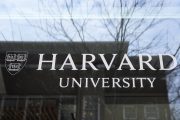
More colleges and universities have announced they will require students and/or staff to be vaccinated for the fall semester.
Last month, Rutgers University in New Jersey became the first major college in the United States to require returning students to receive a COVID vaccine, raising questions on the legality and ethics of mandating vaccines approved with “emergency use authorizations.”
But since then, more than 100 colleges and universities have made similar announcements, the Washington Times reported. While some of the campuses are only requiring students to get the COVID-19 vaccine, others are requiring teachers and staff to do the same.
Stanford University, a private school, has announced all returning students are required to be vaccinated, and those who are exempt for religious or medical reasons will be required to undergo regular COVID-19 testing, KCRA 3 News reported.
Washington, D.C.-area colleges, including George Washington University, American University, Georgetown University, and Johns Hopkins University have all mandated the vaccine, according to the Times. The University of Pennsylvania has also announced that all students returning to campus are required to be fully vaccinated.
Last week, the University of California (UC) and California State University (CSU), two of the country’s largest university systems, announced COVID vaccine requirements for all students and staff returning to campus this fall. According to KCRA 3, the announcement is the largest of its kind in American higher education because it affects a total of 33 campuses.
“Together, the CSU and UC enroll and employ more than one million students and employees across 33 major university campuses, so this is the most comprehensive and consequential university plan for COVID-19 vaccines in the country,” CSU Chancellor Joseph I. Castro said in the statement.
CSU spokeswoman Toni Molle said an official mandate will come once the FDA gives full authorization to one or more of its vaccines.
The Food and Drug Administration approved all three COVID-19 vaccines — from Pfizer, Moderna, and Johnson & Johnson — with “emergency use authorizations,” which means they are still in trial phases and are not yet qualified for licensing from the FDA. The FDA states that vaccines approved this way are “investigational” and requires that “promotional material relating to the COVID-19 Vaccine clearly and conspicuously … state that this product has not been approved or licensed by the FDA, but has been authorized for emergency use by FDA.”
Sadly, like Rutgers, many of these colleges and universities have stated that the vaccines will not remove the need for face masks and social distancing, prompting the question once more: What is the purpose of the vaccine if it does not effectively reduce the transmission of the virus and put an end to the COVID mandates?
“While public health measures like face coverings and physical distancing will likely be part of our fall operations, robust vaccination in our community will enable us to expand activities and interactions that enrich the educational, research, and social experiences that are fundamental to AU,” American University President Sylvia Burwell said in an announcement this month.
Meanwhile, experts continue to question the legality and ethics of mandating vaccinations that have been approved with “emergency use authorization.”
“There is legal uncertainty on whether universities can mandate a vaccine under an EUA. At this point, there are no court decisions on point. The uncertainty stems from the fact that the EUA provision — the statutory clauses giving the secretary of health and human services — tell the secretary that he, she or they have to inform recipients that they have the ‘option to accept or refuse’ the vaccine, and the consequences of refusal,” said Dorit Reiss, a professor at UC Hastings College of the Law.
Under federal law, manufacturers of products approved for emergency use are required to provide “appropriate conditions designed to ensure that individuals to whom the product is administered are informed … of the option to accept or refuse administration of the product, of the consequences, if any, of refusing administration of the product, and of the alternatives to the product that are available and of their benefits and risks.”
The CDC said as much in an August summary report for the Advisory Committee on Immunization Practices: “Under an EUA, vaccines are not allowed to be mandatory.”
The FDA has also said the vaccines must be voluntary.
“For years, the FDA took the position that an EUA product cannot be mandated, this is not a new position, they’ve held it for years,” said Reiss.
It is unclear whether this applies to colleges and universities, however, according to Reiss.
“This is on the background of decades in which clear legal authorities allowed them to mandate vaccines. Under these circumstances, my view (and that of others) is that it’s implausible to read the law as prohibiting university mandates in silence,” Reiss said. “So universities have, at least, a good argument that they can mandate a vaccine under an EUA.”
Of particular concern is the growing evidence that the COVID vaccines have resulted in serious injuries and even death. Life Site News reports the CDC’s Vaccine Adverse Event Reporting System (VAERS) already reveals more than 44,000 reports of injury and death after use of Pfizer’s and Moderna’s vaccines.
The FDA states that individuals who receive the vaccines are required to be informed of the “significant known and potential benefits and risks of such use, and of the extent to which such benefits and risks are unknown.”
Legal and ethical uncertainty has prompted some colleges to reject COVID-19 vaccine mandates. Officials at Virginia Tech have stated they cannot require the vaccines because they have only been approved for emergency use, KCRA 3 News reported. The University of Oklahoma has issued a similar statement.
Some colleges and universities have gone further and explicitly announced they will not mandate the COVID-19 vaccine for students on campus, the Washington Times wrote.
Texas A&M University, which has 71,000 students enrolled this fall, is among this group.
“Texas A&M … is following the governor’s executive order, which stipulates that vaccines are voluntary for all state agencies,” said university spokeswoman Kelly Brown. “A&M is encouraging all faculty, staff and students to get the vaccine.”
According to the Times, governors in Arizona, Idaho, Utah, Florida, Montana, and Texas have signed orders that ban state institutions from mandating proof of vaccination. In Florida, businesses that violate this ban will be punished by being denied state grants and contracts.
It’s also worth noting that the scientific community is not in complete agreement on the need for widespread administering of COVID vaccines. Life Site News reported in November that Dr. Mike Yeadon, former vice president and chief scientist at Pfizer, rejected the notion it was necessary for COVID-19.
In a piece written for Britain’s Lockdown Sceptics, Yeadon wrote there was “absolutely no need for vaccines to extinguish the pandemic … you do not vaccinate people who aren’t at risk from a disease.”
Dr. Yeadon was especially concerned about widespread use of untested vaccines on people who otherwise could tolerate COVID-19.
“You also don’t set about planning to vaccinate millions of fit and healthy people with a vaccine that hasn’t been extensively tested on humans,” he said.
Some lawmakers have been critical of the widespread administering of the vaccines. U.S. Senator Ron Johnson (R-Wis.) said earlier this week that COVID vaccine distribution should have been limited “to the vulnerable” population.
“From my standpoint, because it’s not a fully approved vaccine, I think we probably should have limited the distribution to the vulnerable,” Johnson said during a Thursday interview with radio talk-show host Vicki McKenna.
Johnson expounded on his stance in a statement to the Milwaukee Journal-Sentinel.
“Everyone should have the right to gather information, consult with their doctor and decide for themselves whether to get vaccinated,” he said. “I strongly supported Operation Warp Speed, and celebrated its astonishingly rapid success. Now I believe government’s role (and therefore my role) is to help ensure transparency so that people have as much information as possible to make an informed decision for themselves.”
Johnson added, however, “It is a legitimate question as to whether people at very low risk of suffering serious illness from COVID, particularly the young and healthy, should be encouraged to take a vaccine that is being administered under an Emergency Use Authorization — in other words, before it has been fully tested and fully approved.”





